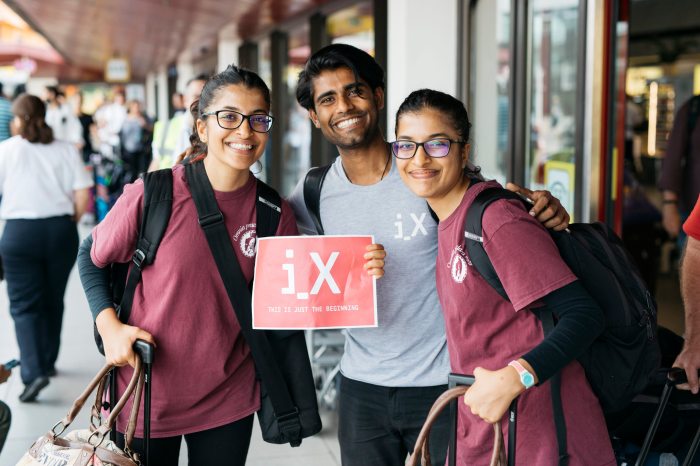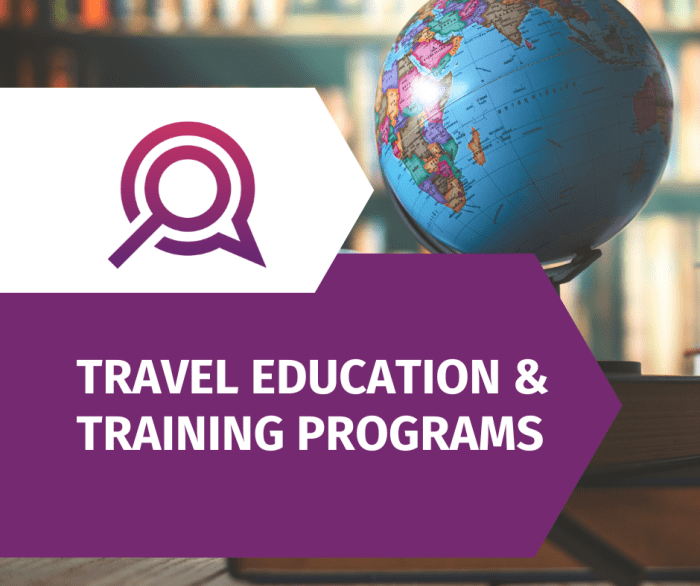Gap Year Study Abroad Programs A Global Journey
Gap year study abroad programs offer a transformative experience for students seeking personal and academic growth. These programs provide a unique opportunity to explore different cultures, acquire valuable skills, and potentially boost future career prospects. They encompass a wide array of options, from academic immersion to volunteer work and internships, allowing students to tailor their experience to their interests and goals. The programs typically last a set period, fostering independence and self-reliance. A deeper dive into these programs reveals a range of benefits, including enhanced intercultural communication skills, greater adaptability, and sharpened problem-solving abilities.
This overview explores the various types of gap year study abroad programs, highlighting their duration, structure, and associated costs. A comparative analysis of different programs, considering location options and potential academic credit, is also provided. Furthermore, student testimonials and success stories will demonstrate the tangible impact these programs have on personal and professional development. Practical considerations, such as program planning, financial aid options, and visa requirements, will be thoroughly addressed to assist students in navigating the process.
Overview of Gap Year Study Abroad Programs

Gap year study abroad programs offer a valuable opportunity for students to broaden their horizons, gain practical experience, and enhance their academic and personal development. These programs provide a structured environment for students to pursue their interests while immersing themselves in a new culture. This often leads to a richer understanding of the world and themselves.
These programs are designed to be transformative experiences, not just a break from academics. They empower students to develop crucial skills like adaptability, independence, and intercultural communication. These benefits often extend far beyond the immediate experience, positively impacting future academic and career pursuits.
Types of Gap Year Programs
Gap year study abroad programs encompass a diverse range of options, catering to various interests and goals. These include academic enrichment, volunteer work, and professional internships. Each category provides unique learning opportunities and valuable experiences.
- Academic Programs: These programs focus on formal coursework, often in subjects not offered at the student’s home institution. They might involve taking university-level courses, attending workshops, or participating in research projects. For example, a student interested in environmental science might take courses on sustainable development in a South American country.
- Volunteer Programs: These programs provide opportunities for students to contribute to local communities in various capacities, such as teaching English, assisting in healthcare, or working with environmental conservation projects. This type of program often provides direct interaction with the local culture and community, facilitating cross-cultural understanding and personal growth.
- Internship Programs: These programs offer students practical experience in a specific field. Students gain firsthand experience by working alongside professionals in the chosen industry. This could involve working in a research lab in Australia, assisting a local business in Spain, or working with a non-profit organization in Africa.
Duration and Structure of Programs
The duration of gap year study abroad programs varies considerably, typically ranging from a few months to a full academic year. The structure of these programs also differs depending on the specific program and its location. Some programs offer a structured curriculum with specific course schedules, while others are more flexible, allowing students to design their itinerary. Program schedules are generally designed to accommodate the needs of students, balancing academic rigor with personal exploration.
Comparison of Program Types
The table below highlights key differences between the various types of gap year programs.
| Program Type | Cost (Approximate) | Location Options | Academic Credit |
|---|---|---|---|
| Academic | $10,000 – $25,000+ | Globally, often focusing on specific regions with universities or educational institutions | Often transferable to the home university, depending on the program |
| Volunteer | $5,000 – $15,000 | Globally, typically focused on regions where volunteer work is needed | Limited or no academic credit. May include certificates or letters of recommendation |
| Internship | $8,000 – $20,000+ | Globally, often focusing on regions with industry relevance | Limited or no academic credit. May include certificates or letters of recommendation |
Costs are approximate and can vary based on specific program details, duration, and location.
Student Experiences and Outcomes

Source: gapforce.org
Gap year study abroad programs offer transformative experiences, fostering personal growth and academic enrichment. Students often report profound shifts in their perspectives and skill sets, laying the groundwork for future success in both their personal and professional lives. These programs extend beyond traditional classroom settings, immersing students in new cultures and environments, which frequently leads to invaluable learning.
Participants in these programs frequently demonstrate enhanced adaptability, problem-solving abilities, and intercultural communication skills. These competencies are highly valued by employers and often translate into tangible advantages in the job market. The unique experiences often reshape students’ understanding of the world and their place within it, leading to more meaningful and purposeful endeavors.
Personal Growth and Academic Achievements
Students often experience significant personal growth during their gap year study abroad programs. Their broadened perspectives and exposure to diverse viewpoints lead to increased self-awareness and a deeper understanding of themselves and the world around them. The challenge of adapting to new environments and cultures fosters resilience and problem-solving skills. Many participants report enhanced critical thinking and analytical abilities, directly impacting their academic performance in subsequent studies. For example, a student studying engineering in the US who spent a gap year in a developing country gained valuable experience in community development and problem-solving, subsequently applying these skills to their engineering projects.
Skills Developed
Gap year study abroad programs cultivate a range of essential skills, directly impacting students’ future success. These experiences provide opportunities to hone crucial skills such as intercultural communication, adaptability, and problem-solving. Exposure to diverse cultures fosters empathy, tolerance, and the ability to navigate complex social situations. This direct interaction with different perspectives strengthens communication skills, crucial for navigating a globalized world.
- Intercultural Communication: Students develop the ability to communicate effectively and respectfully with individuals from different cultural backgrounds. This includes understanding nonverbal cues, adapting communication styles, and recognizing cultural nuances in conversations. This skill proves invaluable in globalized workplaces.
- Adaptability: Successfully navigating unfamiliar environments and cultures fosters adaptability. Students learn to adjust to new routines, embrace unexpected challenges, and find creative solutions to problems they encounter. This adaptability is crucial for navigating the unpredictable nature of professional life.
- Problem-solving: The unique situations encountered during a gap year often require students to think creatively and find innovative solutions. This problem-solving ability transcends academic disciplines and proves invaluable in various professional settings.
- Resilience: Overcoming challenges and adapting to unfamiliar circumstances during a gap year strengthens resilience. Students develop the mental fortitude to persevere through difficulties and maintain a positive outlook. This is essential for navigating the stresses of professional life.
Impact on Career Prospects
The skills and experiences gained through a gap year study abroad program can significantly enhance a student’s career prospects. Employers often seek candidates with a global perspective, intercultural competence, and problem-solving abilities. The program provides tangible evidence of a student’s adaptability and resilience, which can make them more attractive to potential employers.
“A gap year study abroad experience can often provide a competitive edge, showcasing adaptability, intercultural understanding, and resilience. These qualities are highly sought-after by employers.”
The diverse experiences and intercultural exposure often provide a deeper understanding of the globalized business environment, which is a significant advantage in a globalized job market.
Skills Development Table
| Skill | Description | Example |
|---|---|---|
| Intercultural Communication | Effective communication across different cultures | Navigating social situations in a new country, understanding nonverbal cues |
| Adaptability | Adjusting to new environments and situations | Adapting to a new academic schedule or living arrangements |
| Problem-solving | Finding creative solutions to challenges | Overcoming language barriers, resolving logistical issues |
| Resilience | Maintaining a positive attitude and persevering through difficulties | Handling unexpected setbacks or cultural differences |
Practical Considerations for Planning

Planning a gap year study abroad program involves a careful and strategic approach. It requires meticulous research, careful consideration of financial implications, and a thorough understanding of visa requirements. A well-structured plan ensures a smooth transition into the program and a positive experience overall.
Planning a gap year study abroad program is a multifaceted process that extends beyond simply choosing a program. It requires careful consideration of various aspects, from initial research to final application submission. Understanding the steps involved, financial commitments, and necessary documentation is essential for a successful and fulfilling experience.
Researching and Comparing Programs
Thorough research is the cornerstone of a successful gap year study abroad program selection. Begin by identifying your interests and goals. Consider the types of courses offered, the location, and the cultural immersion opportunities. This initial assessment will help narrow your choices.
Next, compare different programs offered by various providers. Look for programs that align with your academic goals, personal interests, and budget. Evaluate the curriculum, faculty, student support services, and overall program structure. Consider testimonials from past participants and program reviews to gain valuable insights. Websites, online forums, and social media groups dedicated to gap year programs can provide a wealth of information.
Financial Planning
Gap year study abroad programs can involve significant financial commitments. Understanding the costs involved, exploring funding options, and securing financial aid is crucial. Costs typically include tuition, accommodation, travel, visa fees, and personal expenses. Program fees often vary based on the program’s duration, location, and specific activities.
Explore various funding options. Consider personal savings, scholarships, grants, student loans, and part-time work. Research scholarships specifically designed for gap year programs or international studies. Seek advice from financial advisors and explore options for budgeting and managing finances during the program.
Visa Requirements and Documentation
International gap year study abroad programs necessitate adherence to specific visa requirements and documentation. Visa application procedures vary considerably depending on the host country and your nationality. The necessary documentation typically includes a passport, a visa application form, proof of financial resources, academic transcripts, and health insurance.
Thorough research into the specific visa requirements of the host country is paramount. Contact the embassy or consulate of the host country to obtain the most up-to-date information on visa requirements and procedures. Ensure that all required documents are submitted accurately and on time. Any discrepancies or omissions could lead to delays or rejection.
Key Documents for Application
A comprehensive list of necessary documents is essential for a smooth application process. This table articulates the critical documents typically required:
| Document Type | Description |
|---|---|
| Passport | Valid passport with sufficient validity beyond the program duration. |
| Visa Application Form | Completed and signed the application form specific to the host country. |
| Financial Documents | Proof of sufficient funds to cover program expenses (bank statements, scholarship letters). |
| Academic Transcripts | Official transcripts from previous institutions demonstrating academic qualifications. |
| Letters of Recommendation | Letters from academic advisors or professors supporting your application. |
| Health Insurance | Proof of health insurance coverage valid for the duration of the program. |
| Immunization Records | Records of necessary vaccinations and health screenings. |
| Other Required Documents | Any additional documents specific to the program or host country? |
Researching Program Providers, Gap year study abroad programs
Comparing different gap year program providers is a vital step in the planning process. Consider factors such as reputation, program quality, and student support services. Review the program provider’s website for detailed information on the program’s structure, curriculum, and student testimonials.
Seek out independent reviews and testimonials from previous participants to gauge the program’s effectiveness and quality. Contact program providers directly to clarify any uncertainties and ask specific questions. Understanding the program provider’s policies and procedures will contribute to a more informed decision.
Summary: Gap Year Study Abroad Programs

In conclusion, gap year study abroad programs present a compelling opportunity for students to embark on enriching journeys that extend beyond the traditional classroom. By offering a blend of academic experiences, cultural immersion, and personal growth, these programs equip students with the skills and perspectives necessary for success in a globalized world. The diverse range of programs available, coupled with the extensive support resources and practical planning guidance, ensures that students can make informed decisions and maximize the benefits of this transformative experience. Ultimately, these programs can be a cornerstone of future success.





